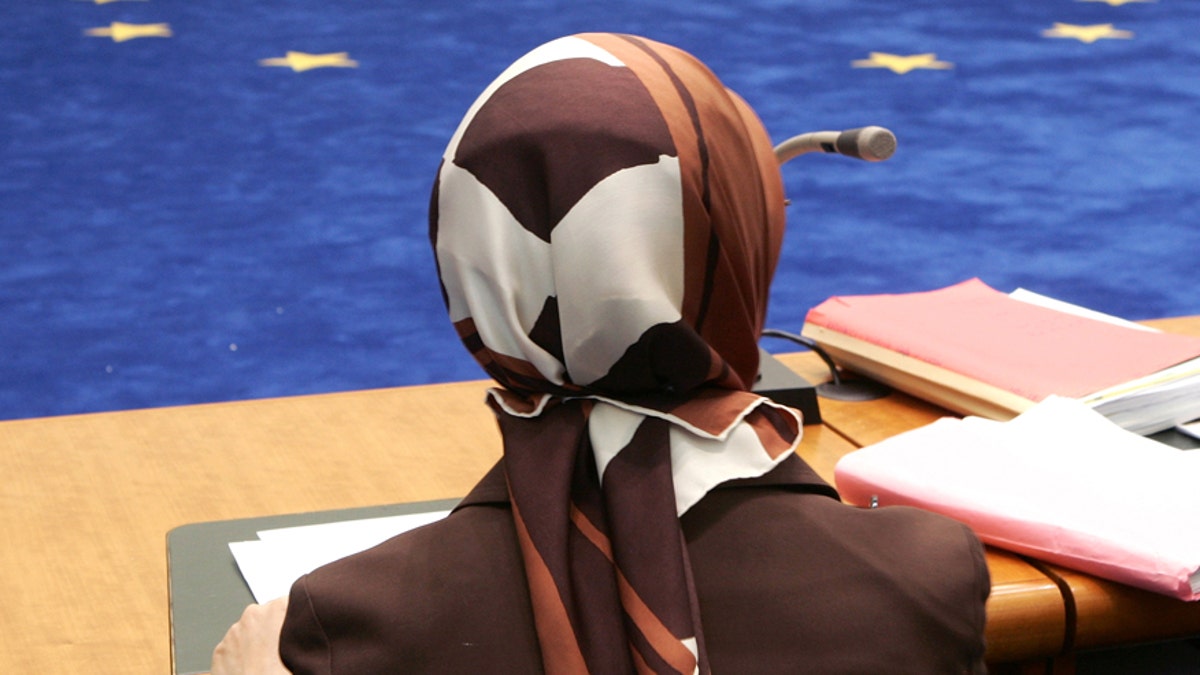
The ruling was seen as a victory for many in the political right wing. (Reuters)
Employers across Europe can now ban workers from wearing visible religions symbols including the Islamic headscarf, the European Union’s top court ruled on Tuesday, finding it would not constitute “direct discrimination.”
The ruling, seen as a victory for many in the political right wing, was the first of its kind amid a series of legal disputes surrounding women’s rights to wear a hijab at work.
MUSLIM HEADSCARVES IN EUROPE: THE BATTLE HEATS UP
The European Court of Justice (ECJ) ruled that companies with legitimate reasons to project a neutral image could establish internal rules banning political, philosophical or religious symbols, saying the rule “does not constitute direct discrimination,” the Guardian reported.
“However, in the absence of such a rule, the willingness of an employer to take account of the wishes of a customer no longer to have the employer’s services provided by a worker wearing an Islamic headscarf cannot be considered an occupational requirement that could rule out discrimination,” the court said in a statement.
MINNESOTA MAN WAS NAZI COMMANDER, POLAND CLAIMS
The conclusion of the highest court of the 28-nation EU amounts to a victory for French far-right leader Marine Le Pen, a leading presidential contender, who wants to do away with all "ostentatious" religious symbols in the name of secularism.
The ruling applied only to private businesses, but clarified a long-standing question about whether partial bans by some countries on religious symbols can include the workplace.
In its ruling the ECJ considered the cases of two women, in France and Belgium, who were dismissed from their jobs for refusing to remove their headscarves.
In one of the cases, Samira Achbita had been a receptionist for the Belgian branch of G4S, the London-listed outsourcing and security company. After three years at the firm, Achbita started wearing a headscarf at work for religious reasons. The company said she had broken “unwritten rules” prohibiting religious symbols and was fired in June 2006 after refusing to take off her scarf.
The company reportedly updated its workplace regulations after the woman started wearing a hijab.
In this case, the ECJ ruled that companies should be allowed to have policies banning the wearing of religious or political symbols.
“The court of justice finds that G4S’s internal rule refers to the wearing of visible signs of political, philosophical or religious beliefs and therefore covers any manifestation of such beliefs without distinction. The rule thus treats all employees to the undertaking in the same way, notably by requiring them, generally and without any differentiation, to dress neutrally,” the court said in a statement.
NETHERLANDS BAN TURKISH MINISTERS AS DISPUTE ESCALATES
In the case from France, design engineer Asma Bougnaoui was fired from her IT consultant job after a customer complained that his staff had been “embarrassed” by her headscarf while on their premises. She refused to remove her headscarf and was fired.
Before Bourgnaoui accepted that job, she was told that wearing a headscarf might pose problems for some of the company’s customers, according to the Guardian.
The ECJ ruled that the French woman had suffered discrimination because she had been “professionally competent” and was fired only because she had refused to remove their headscarf.
Opinions were quickly divided. A European anti-racism network ENAR and Open Society Justice Initiative say all Muslim working women risk consequences. French conservative presidential candidate Francois Fillon, also promoting secularism, hailed the decision.
The Associated Press contributed to this report.








































